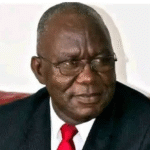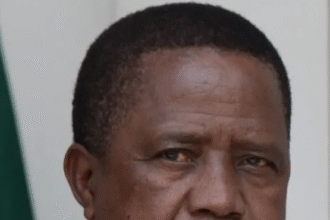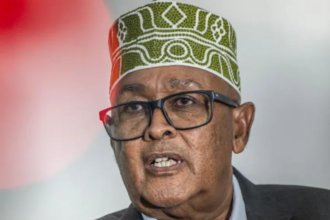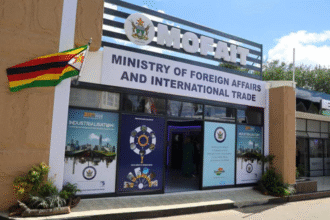By Isaac Okoro
Abuja, Nigeria – In a move met with both optimism and skepticism, Sierra Leone’s President Julius Maada Bio was elected Chairman of the Authority of Heads of State and Government of the Economic Community of West African States (ECOWAS) at the regional bloc’s summit in Abuja yesterday. This marks the first time Sierra Leone has held the chairmanship since the era of President Siaka Stevens in the 1980s.
According to a statement from Sierra Leone’s State House, President Bio’s election “symbolizes renewed commitment to unity, peace, security, and sustainable development across the West African region.” The statement portrays President Bio as a “transformative leader ready to steer ECOWAS through challenging times,” citing his “democratic credentials and consistent pursuit of social and economic progress.”
President Bio outlined four key strategic priorities upon accepting the position: restoring constitutional order and deepening democracy, revitalizing regional security cooperation, unlocking economic integration, and building institutional credibility. These pillars are expected to guide ECOWAS’ efforts toward regional stability, economic prosperity, and enhanced cooperation among member states. He also thanked outgoing Chairman, President Bola Ahmed Tinubu of Nigeria, for his leadership.
“Thank you for placing your trust in me and in the Republic of Sierra Leone,” President Bio stated. “I accept this responsibility with full awareness of the magnitude of the task ahead and the complexity of the moment.”
However, the appointment has been met with significant controversy within Sierra Leone. Many citizens are expressing “shock and dismay” at President Bio’s election, citing concerns over the legitimacy of his victory in the 2023 general and presidential elections. The opposition and international observers have described the election as “lacking credibility,” and the opposition’s demand for full publication of the election results remains unfulfilled. Critics argue that President Bio’s refusal to release the full results suggests an attempt to conceal the truth and prevent electoral justice.
ECOWAS, established in 1975 with the aim of promoting cooperation and integration leading to an economic union, operates under a revised treaty focused on harmonizing policies, establishing a common market, and improving the living standards of its citizens. The Authority of Heads of State and Government oversees key ECOWAS institutions, including the Council of Ministers, the Community Parliament, and the ECOWAS Commission.
President Bio’s chairmanship also comes at a sensitive time for Sierra Leone, which is increasingly recognized as a hub for narcotics trans-shipment, raising concerns about the country’s potential as a haven for drug barons. This adds another layer of complexity to his role as ECOWAS Chairman, requiring him to address regional security concerns while simultaneously grappling with significant domestic challenges.
The coming months will be a critical test of President Bio’s leadership, both within Sierra Leone and across the West African region. Whether he can overcome the doubts surrounding his election and effectively steer ECOWAS towards its goals of stability, prosperity, and integration remains to be seen.









